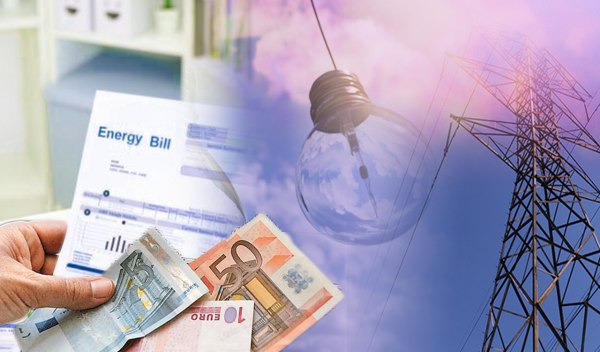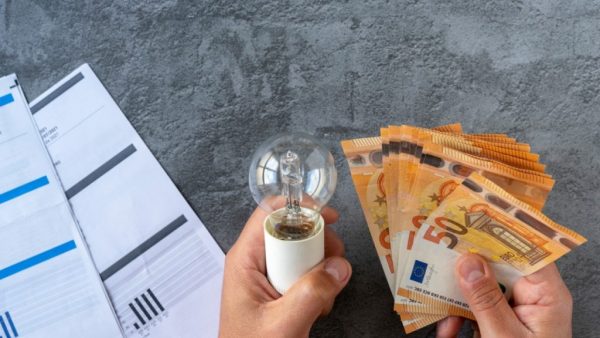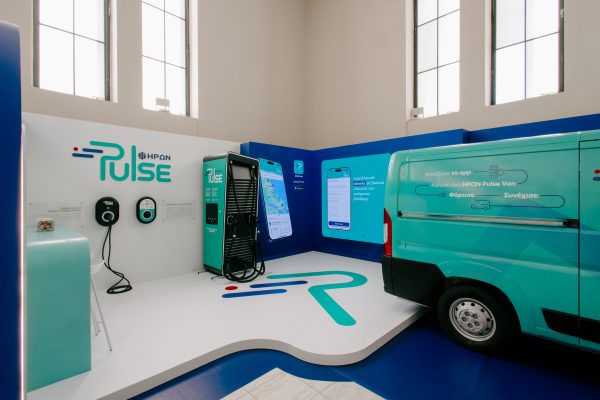
Greece has enacted an impressive array of measures to support its ambitious climate goals while maintaining energy security. But stronger action is needed to reduce its reliance on fossil fuels and meet its goal of net zero emissions by 2050, according to a new report by International Energy Agency.
The report even praises Greece for its significant progress since 2017, when it was last subjected to an IOC review.
As highlighted, Greece has set new targets for reducing greenhouse gas emissions, drastically reduced the use of coal-fired generation, reformed electricity and natural gas markets, expanded its cross-border interconnections and passed legislation for the development of offshore wind generation.
It has also managed to reduce the share of fossil fuels in its energy supply – from 91% in 2011 to 82% in 2021 – but still remains above the ILO average of 78%.
Energy taxation
According to the report the government aims to use energy taxation to promote energy transition. Greece’s effective tax rates on CO2 emissions from energy use are high compared to other OECD countries. However, tax rates vary by fuel and uses, as well as tax credits, and send mixed messages that are not aligned with Greece’s climate goals.
There are many exemptions and reductions in energy taxation. In addition, electricity bills include a wide range of fees and charges, many of which have nothing to do with consumers’ use of electricity. This reduces the incentive to save energy and makes electrification a less attractive option.

As an EU member state, Greece is committed to abolishing fossil fuel subsidies. However, the OECD estimates that in 2020, Greece provided over €1.9 billion in fossil fuel subsidies.
From 2015 to 2020, fossil fuel subsidies fell by 14% due to reductions in direct transfers that support oil-based electricity generation on non-interconnected islands and lower spending on heating subsidies.
Tackling energy poverty and high energy prices
The report highlights that energy poverty in Greece is increasing, while the goal is to reduce it by at least 50% by 2025 and below the EU average by 2030.
The government estimates that in 2021, 17.5% of the total population and 36.7% of financially vulnerable consumers were unable to adequately heat their homes: these figures are higher than the European Union’s figure of 8% .
In September 2021, Greece published an Action Plan to Combat Energy Poverty, which gives a quantitative definition of energy poverty and sets out a broad strategy supported by concrete measures to reduce energy poverty. The social tariff (established in 2010) is the main policy tool to tackle energy poverty. It provides reduced electricity prices to various categories of economically or socially vulnerable household consumers. The government estimates that in 2019, 500,000-550,000 households benefited from the social tariff.

Climate Act
According to the authors of the report, the national Climate Law, passed in May 2022, sets a clear direction for Greece’s energy transition. It aims to reduce greenhouse gas emissions by 55% by 2030 and achieve net zero emissions by 2050. Greece has already achieved a very significant reduction in the share of lignite-based electricity generation from 60% in 2005 to 10% in 2021. The Climate Act requires a complete phase-out of lignite production by 2028.
“Greece has made significant strides in reducing carbon use and harnessing its wind and solar resources,” commented IEA Executive Director Fatih Birol, adding: “It must now build on this success by moving further and faster, between others by speeding up the permitting process for new renewable energy projects. At the same time, it must ensure that the programs
some new investments in natural gas infrastructure reflect what is needed to maintain security of supply.”
Renewable energy sources
Greece’s energy policy seeks to boost energy production from renewable sources, while increasing the share of total energy demand covered by electricity.
By 2030, Greece plans to have 2 gigawatts of offshore wind power, equivalent to 10% of its current electrical capacity. Greece is also a world leader in rooftop solar thermal systems, which provide hot water for buildings using the abundant sunshine.
New connections
The IEA reports that Greece is not only strengthening its domestic energy production, but also expanding its regional and international interconnections. The country is building new electricity interconnections to export surplus renewable energy and diversify its sources of supply. It has also taken steps to modernize the electricity and gas markets, including reforms to support full integration into the common European electricity market.
In particular, the government announced plans to double the capacity of connections with Bulgaria, Italy and North Macedonia, triple the capacity of connections with Albania and create an interconnection with Egypt.
It has also drastically cut its dependence on fossil fuel imports from Russia following its invasion of Ukraine, boosting LNG import capacity and diversifying natural gas supplies. Greece can now cover almost all of its natural gas demand from LNG sources, enhancing its energy security and flexibility.
The goals
The International Energy Agency notes that Greece met most of its energy and climate targets for 2020. However, a significant share of the decline in energy demand and GHG emissions was caused by Greece’s prolonged economic contraction following its crisis 2008 and the Covid-19 pandemic. Greece has reduced the carbon intensity of its economy, but rising demand after pandemic restrictions are lifted in 2021 is already leading to increased greenhouse gas emissions.
Interventions
The international organization underscores that Greece’s energy policy focuses on strengthening the use of renewable energy sources, especially for electricity production, alongside increasing the share of energy demand covered by electricity, especially for transport and heating and cooling. IEA notes that several major changes to the support program for electricity generation from renewable sources recently took place in order to increase the rate of growth and ensure low electricity prices.
Greece is also taking steps to reduce the time required to permit and authorize projects for renewable energy, electricity infrastructure and energy storage.
In August 2022, Greece passed its first offshore wind law, targeting 2 gigawatts (GW) of offshore wind capacity by 2030.
Investments
There are also significant investments planned to strengthen domestic transmission and distribution capacity to support much higher levels of generation from wind, solar, photovoltaic and hydropower. The government also aims to connect the most populous islands to the mainland electricity grid by 2030.
Electricity market reforms
To ensure the efficient and effective operation of the electricity market, the country completed major reforms in 2020 to introduce three electricity wholesale markets and a derivatives market. It has also completed several reforms to support full integration into the European common electricity market, including joining the intraday coupling of the European market in December 2022 and opening its market to demand response in September 2022. The Greek natural gas market gas has also undergone significant changes in recent years. with the opening of a natural gas spot market in March 2022.
The energy crisis
From the end of 2021, global energy prices started to rise rapidly, especially in Europe. Price increases and high volatility remained in 2022, mainly due to the impact of Russia’s invasion of Ukraine. Greece has taken many measures to limit the impact of high energy prices, especially for vulnerable consumers. Greek efforts include the expansion of existing measures aimed at energy efficiency and the introduction of wider measures to reduce energy prices for most consumers.
From September 2021 to November 2022, Greece allocated €9 billion in energy subsidies and other measures to help consumers pay utility bills. Most of this support is provided through the Energy Transition Fund, established in 2021 to finance a variety of subsidies for electricity, natural gas, heating oil and transport fuels to combat energy poverty and reduce the impact of high energy prices.
Reducing dependence on Russian fossil fuels
The IEA reports that Greece has a significant dependence on fossil fuel imports from Russia. In 2021, Russia accounted for 96% of coal imports, 41% of natural gas imports, 21% of crude oil imports, and a small share of petroleum product imports. Coal imports are mainly used in the industrial sector, mostly for steel production.
Gas-fired generation plays a key role in the Greek electricity system, and natural gas is also important for heating buildings and industry.
The report points out, however, that Greece is taking strong steps to reduce the country’s and the EU’s dependence on Russian energy imports.
A new floating storage unit at the liquefied natural gas (LNG) terminal began operations in August 2022. Thanks to the new unit, LNG cargoes have doubled year-on-year, while imports from Russia have fallen from 40% to less from 20% of Greece’s natural gas supply.
It also notes that one of Greece’s biggest natural gas importers has signed an agreement that could replace almost 100% of Greece’s remaining natural gas imports from Russia.
Recommendations
In this context, the International Energy Agency calls on the Greek government to:
- Reassess the need for investment in fossil fuel infrastructure, taking into account the risk of stranded assets and the need to direct limited capital to investments that support the energy transition.
- Ensure transparent and stable legal and regulatory frameworks, which enable the implementation of renewable energy and electricity infrastructure projects within a reasonable timeframe. Streamlining of spatial planning and permitting processes to facilitate the timely implementation of projects.
- Adjust taxes, market regulations and financial support measures so that energy prices drive behavior and investment towards a just energy transition, increase system flexibility and reduce the risk of stranded assets.
- Focus building renovation programs on deep renovations that combine thermal insulation with heat pumps to deliver maximum benefits for energy savings and lower bills. Vulnerable households should be prioritized and adequately resourced.
- Promote the replacement of old vehicles, especially trucks, by providing incentives, including a scrapping program to exchange old vehicles for more efficient ones.
Latest News

Economist: Greece Included in the Best Performing Economies in 2024
Meanwhile, Northern European countries disappoint, with sluggish performances from the United Kingdom and Germany.

EasyJet Expands Its Routes from Athens
The airline’s two new routes will be to London Luton and Alicante and they will commence in summer 2025.

Capital Link Forum Highlights Greece’s Economic Resurgence; Honors BoG Gov Stournaras
Capital Link Hellenic Leadership Award recipient, Bank of Greece Gov. Yannis Stournaras, an ex-FinMin, was lauded for his pivotal role during Greece’s economic recovery

Tourist Spending in Greece Up by 14%, Visa Card Analysis Shows
Greece’s capital Athens emerged as the most popular destination, recording a 17% increase in transactions with Visa cards, surpassing even the cosmopolitan island of Mykonos.

Inflation in Greece Unchanged at 2.4% in Nov. 2024
The general consumer price index (CPI) posted a 0.4% decrease in November compared to the previous month

2024 Christmas Holidays: Extended Shop Hours Schedule
The 2024 Christmas Holidays extended shop hours schedule commences on Thursday, December 12 and runs until the end of the year.

ELSTAT: Seasonally Adjusted Unemployment Down in October
The number of employed individuals reached 4,284,694, an increase of 67,723 compared to October 2023 (+1.6%) and 22,002 compared to September 2024 (+0.5%).

Greek PM’s Chief Economic Adviser Resigns
In the post on his Facebook page, Patelis did not disclose the reasons that led him to step down.

“Masdar Invests in the people of Greece and in the vision of TERNA ENERGY”
Four messages from the CEO of Masdar, the Arab renewable energy giant, after its acquisition of 70% of TERNA ENERGY

Lloyd’s List Greek Shipping Awards 2024: Honors for leading companies and personalities in the Greek shipping sector
20 awards presented at the 21st annual Lloyd's List Greek Shipping Awards











































 Αριθμός Πιστοποίησης Μ.Η.Τ.232433
Αριθμός Πιστοποίησης Μ.Η.Τ.232433